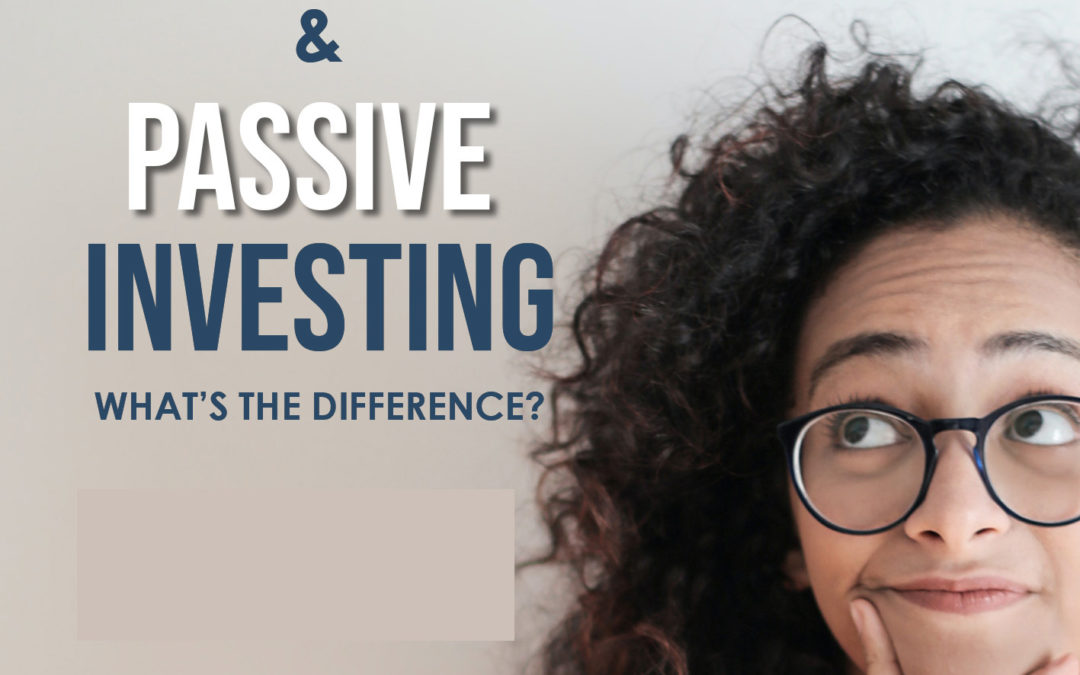There’s a lot to learn when you first start thinking about investing in real estate and a lot of decisions to make. One of the very first decisions is whether you want to be an active or passive investor. To decide, you should know what each involves, as well as the pros and cons. Read on to discover which is right for you.
What is an active investor?
An active investor is in control of the property or properties and spends a lot of time ensuring everything is running smoothly. They are responsible for:
- Finding the property
- Securing financing for the investment
- Making a business plan
- Executing the plan
- Finding and managing the right team members
- Talking to property managers
- Managing the risks associated
- Putting things right when they go wrong
If you have the required time, the idea of starting a new business excites you, and you want to be involved in every aspect of the day-to-day management of your investments, then being an active investor may suit you. Let’s take a look at the pros and cons of being an active investor:
Pros of Active Investing
- You are in full control
- You know every detail of what’s going wrong or right
- If you have sufficient resources, you can be the sole investor and receive all income or profit
Cons of Active Investing
- You are responsible for everything
- You need to invest the time to learn what you need to know to make the right decisions
- You could make costly poor decisions if you don’t have someone experienced to guide you
- If you’re not available full-time, it can eat up all your spare time
- You are responsible for building the right team and replacing anyone as necessary
- If you’re seeking a significant amount of financing from others or institutions, you need to be able to prove why you are a good investment
- More of the risk typically rests with you
- Renovation budgets can get out of hand quickly, especially if you don’t have a lot of experience evaluating properties or if you get carried away with the finish of the property
- If you fail to correctly project your costs, you could end up with a much less healthy profit margin (or even none at all)
What is a passive investor?

A passive investor (also known as a limited partner) is someone who is happy to invest the money and let someone more experienced take on the day-to-day operations. Limited partners invest their money with someone knowledgeable, such as a multifamily syndicator (often referred to as a sponsor).
You will see a return on your investment with little-to-no effort from you. You might compare it to investing in the stock market, where you invest your money in a certain company, but don’t have to deal with the day-to-day operations of that company. However, the difference with multifamily investing is your investment is backed by a solid asset, and often the returns can be better.
Let’s take a look at the pros and cons:
Pros of Passive Investing
- You’re essentially hands-free
- Your money works for you while you live your life
- You can diversify through multiple syndications with the same sponsor or multiple
- Your sponsor is incentivized to make a return
- Typically less personal risk
- Developing a good relationship with a talented sponsor or syndication can result in many profitable investments for you
- In many cases, you will receive a “preferred return,” which means you’ll receive your return before the syndicator receives their money
- You’re trusting someone with more expertise rather than depending on your own research
Cons of Passive Investing
- You have limited control over the business plan (instead, you choose to invest in one that appeals to you with someone you trust)
- A high level of trust in your sponsor is required
- You need to be someone who knows how to delegate and let people do their work (ideal for busy business owners, doctors, those who have created and sold companies, CEOs, etc.) because you can’t micromanage your sponsor
How Much Money Do I Need to Invest?

If you’re going to actively invest, then that depends entirely on what model you choose. What class property are you looking at? Are you looking at single-family or multifamily properties? In some areas, you can get started for little (a down payment of around $10,000 for a single-family residence) if you are happy to have a large mortgage, though you do need to be aware that you should keep some money aside for emergencies and any periods without a tenant. Do your math meticulously to ensure you have a sound ROI.
If you’re looking to invest passively, you should look to have $50,000 or more, again, depending on the specific properties, areas, and opportunities you’re considering. You won’t need to worry about additional costs, and most syndications aim to offer you a very healthy ROI. Why? Because they want you to invest with them again so they can make you – and them – more money in the future.
So Which is Right for Me?
You’re going to need to do your research, regardless of which style of investing appeals to you most. Obviously, if you plan to actively invest, you’re going to have to do even more because you’ll be making every decision. When you’re investing a lot of money, you need to ensure you’re getting it right.
If you’ve always imagined being an active investor but are worried about the time commitment and making a mistake, starting with passive investing can be a good way to dip your toe and start learning what to look for in the future.
If active investing doesn’t really interest you, but you’ve been interested in property investing due to the security a physical asset brings, then passive is the perfect choice for you. It can offer you all the benefits of investing in real estate, without the steep learning curve or headaches of managing your own properties.
The good news is that just about anyone can invest in real estate, but you need to choose the right investment strategy. If you choose to invest actively but realize it’s not for you, changing your mind can be costly, not to mention stressful. Unless you have prior experience working in real estate, passive investing may be the safer bet. Just ensure you work with a syndicator you believe in that is happy to answer all your questions.
If you’re interested in learning more about investing passively or about our upcoming syndications, please don’t hesitate to contact us.

